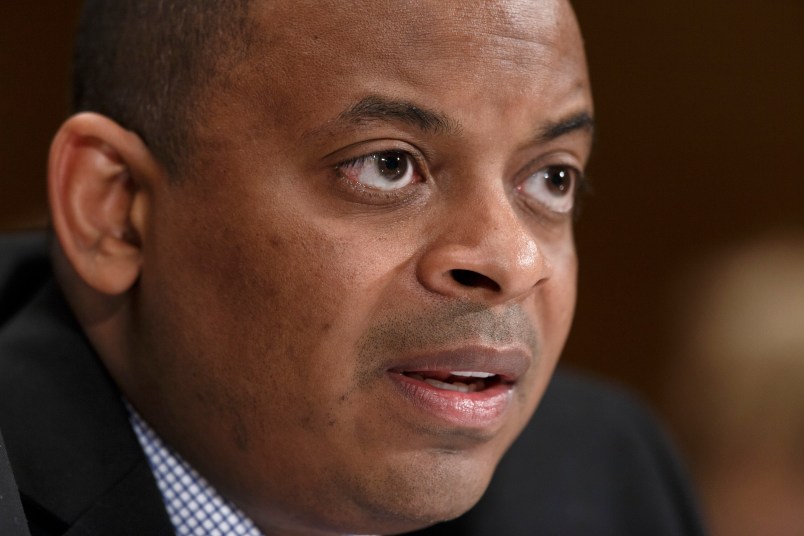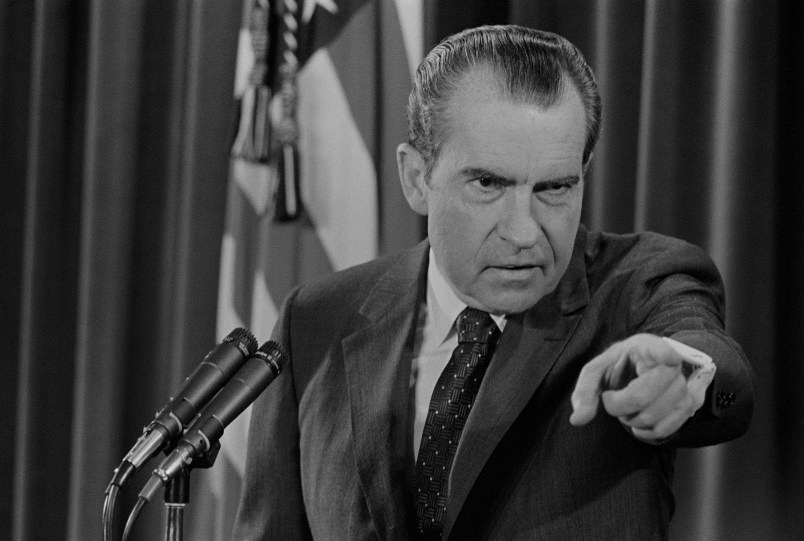“What GM did was break the law,” Anthony Foxx, the secretary of transportation, announced as a news conference on Friday. The National Highway Safety and Transportation Agency imposed a $35 million penalty on General Motors, the largest ever imposed on an automaker, for its failure to correct and its cover up of known defects in the ignition switch of the Cobalt, a problem that contributed to at least 13 deaths.
While the fine and the multiple continuing federal investigations of GM may deter future wrong doing, they risk closing the garage door after car has crashed. GM is not alone. Toyota and Ford both recently paid hefty fines for misleading the public and regulators or failing to recall defective vehicles.
Something is wrong — and the problem goes beyond cars. In January, Freedom Industries tanks spilled thousands of gallons of chemicals into West Virginia’s Elk River, an industrial chemical spill in the Elk River, contaminating the drinking water for 300,000 people and sickening hundreds. The spill came after Freedom had failed to carry out regulators’ recommendations made after previous spills. Last month, federal investigators concluded that the explosion at the West Fertilizer Company in Texas that last year killed 14 people and injured more than 200 was due to a lack of oversight and regulations at the local, state and federal levels.
Americans rely on health and safety regulations to ensure that the products we use – and the processes that make them – won’t kill us. But today America’s health and safety enforcers are weaker than they have been in decades.
Once, the United States led the world in protecting public health from corporate excess. Between 1960 and 1980, spurred by the environmental and consumer movements, 49 federal laws were passed that set rules for the health and environmental practices of nearly every industry. Majorities of the public and both parties supported these regulations. And these regulations saved lives. After NHTSA was created, the United States motor vehicle death rate per 100,000 fell from 25.9 in 1966 to 10.8 in 2012, although countries with stronger regulations saved even more lives.
Beginning in the late 1970s, however, corporate America launched a counter-offensive. Using President Ronald Reagan’s 1981 inaugural claim that “government is not the solution to our problem, government is the problem,” corporate leaders began a systematic effort to roll back, underfund, and delay regulations. Corporations bankrolled advocacy campaigns that won support of lawmakers from both parties – advocacy campaigns that continue in 2014. It is this legacy that sowed the seeds for today’s regulatory failures in the auto, food, pharmaceutical and other industries.
What are the health consequences? Today chronic diseases and injuries are the nation’s leading causes of premature death and preventable illnesses and injuries. Three of every four health care dollars is spent treating chronic diseases. Injuries, especially those related to automobiles, firearms, and alcohol, are the leading causes of death for young people. The practices and products of the tobacco, food, alcohol, firearms and automobile industries are major contributors to the most common chronic conditions and injuries. The decisions the United States makes about regulation of these industries will determine whether we can reverse the growing burden of chronic diseases and injuries.
Three changes could help. First, all companies should have a duty to disclose what they know about the harmful effects of their products and executives who withhold such evidence should be subject to criminal penalties. Second, making false health claims (for example, claiming that sugary cereals with a few added vitamins are healthy) should be subject to sanctions that are tough enough to deter violations. Third, regulatory agencies should use the full scope of their existing powers to protect public health. This could include more forceful regulation of tobacco, more aggressive and timely analysis and investigation of consumer complaints about the safety of cars and trucks, and bigger penalties for drug or device makers who fail to report adverse events promptly.
Reform will not be easy. For four decades, corporate America has campaigned effectively to roll back health and safety rules. But unless citizens and health and consumer organizations push back, Americans will increasingly be guinea pigs for risky products.
Nicholas Freudenberg is Distinguished Professor of Public Health at City University of New York and author of Lethal But Legal: Corporations, Consumption and Protecting Public Health (Oxford University Press, 2014). He has written about corporations and health for Slate, Salon, the Guardian, the Daily Beast, the American Interest and numerous scientific journals and is a member of the Scholars Strategy Network.










For this to happen, you need a corps of expertise in the various fields being regulated that isn’t ultimately co-opted by the industries being regulated. Which means (among many other things) bigger budgets for the regulatory agencies. Good luck. You’re also going to need larger fines, or some other kind of punishment that directly affects the decisionmakers. Because $35 million is what, the profits on six months’ production?
When breaking the law leads to unnecessary deaths of human beings, if you’re not an executive of a large corporation you usually go to jail. If an executive was drunk and ran over someone in their GM car, they would be tried for manslaughter. How is it that no one in GM is criminally liable here?
A very important part of enforcing regulations is to enforce them on imported products, otherwise all you do is drive jobs overseas and cause the importation of even shoddier products…
I’d really like to be able to buy bolts at Home Depot again that don’t snap when you tighten them down. Even better if they were made in USA instead of China.
No executives were held criminally responsible for the BP oil spill, Wall Street’s “robo-signing”, LIBOR, JPMorgan’s lies to the SEC or the Upper Big Branch mine disaster.
So why would you think that the Obama Justice Department would finally and suddenly hold GM executives to account?
In the absence of a sustained organized protest movement demanding criminal charges why would you believe, for even a moment, that anything would change?
Since no such protest movement exists (or is even being contemplated) why would the Democratic or Republican party break and betray their loyalty to Wall Street in defense of ordinary citizens?
Your great concern is noted.